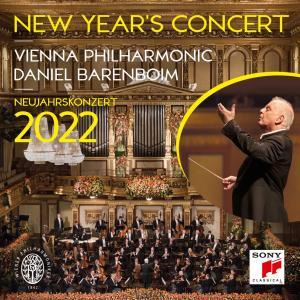Frank DeVol
A tribute by Robert Walton
It’s amazing the number of people in the entertainment business who have a “De” before their surname. There’s Buddy DeFranco, Gloria DeHaven, Reginald DeKoven, Eddie DeLange, Vaughn DeLeath, Milton DeLugg, Gene DePaul, Peter DeRose, Buddy DeSylva and our star arranger for this article, Frank DeVol.
Frank Devol’s main claim to fame was his 1948 orchestral introduction to Nature Boy for Nat “King” Cole. This now legendary Delian dissonance marked a very important moment in popular music history. It was the time the musical baton was symbolically passed on to “arranger-in-waiting” for the stars, Nelson Riddle, anticipating all those beautiful singles Cole recorded. And later this led to Frank Sinatra finally joining forces with Riddle. In fact it was during Axel Stordahl’s reign as Sinatra’s orchestrator that DeVol came up with that revolutionary chart for Cole. Frank DeVol was also brilliant at writing instrumentals.....with a difference. These jazz-based arrangements never do quite what you think. Listen to his “Portraits” album on Jasmine (JASCD 538) and you’ll see what I mean. His string writing has always been special and top priority.
But this versatile musician was also known as Frank Denny De Vol a performer specializing in deadpan characters. He starred in the 1961 film “Parent Trap”. This was highly unusual because arrangers aren’t normally known for their ability to act. They tend to concentrate on the creative process. The last thing they want to do is show off. For them things come alive later in the studio when the players emerge from the woodwork!
Occasionally he sang. Remember the duet with Margaret Whiting in I Said My Pajamas (And Put On My Prayers) which charted in 1950? Other vocalists he arranged and conducted for were The Four Lads, Jo Stafford, Bing Crosby, Mel Tormé, Dinah Shore, Jack Smith, Gordon MacRae, Doris Day, Vic Damone, Dean Martin, Jimmy Wakely and Ella Fitzgerald. After DeVol’s wife died in 1989 he married Jimmy Dorsey singer Helen O’Connell. Talking of big bands, DeVol arranged and played lead alto sax for Horace Heidt and arranged for Alvino Rey.
On the film front Frank scored more than 50 movies including “Guess Who’s Coming to Dinner”, “Pillow Talk”, ‘Hush Sweet Charlotte”, “Cat Ballou”, Flight of the Phoenix”, “Send Me No Flowers”, “Herbie Goes to Monte Carlo” and “Frisco Kid”.
It all started when the young Frank DeVol played violin in his father’s orchestra. Little did he know then that this modest beginning on a bowed 4 string instrument would lead him to becoming one of the world’s great arrangers.
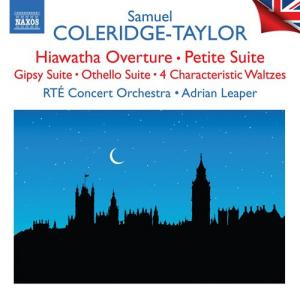 CD Review – Samuel Coleridge-Taylor
CD Review – Samuel Coleridge-Taylor
RTE Concert Orchestra / Adrian Leaper
(British Light Music Vol. 5)
Naxos 8555191
The latest re-issue in the [now Naxos] British Light Music series is the collection, previously available on the Marco Polo label [8.223516, (p) 1995 ], of works by Samuel Coleridge Taylor.
CD Review – Eddie Calvert – The Man With The Golden Trumpet – A Centenary Tribute - his 29 finest
Written by Peter Burt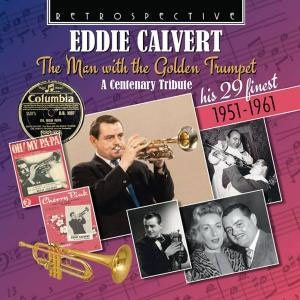 CD Review – Eddie Calvert
CD Review – Eddie Calvert
The Man With The Golden Trumpet
A Centenary Tribute - his 29 finest
Retrospective RTR4392 [78’]
The Retrospective label, with its expert collector and compiler Ray Crick, is a rich repository of our kind of music and I feel sure this release will be of interest to many readers.
CD Review – New Year’s Concert 2022 - Vienna Philharmonic - Daniel Barenboim
Written by Peter BurtAll Through The Night (TRAD)
Analysed by Robert Walton
If you have diligently followed Robert Farnon’s “journey into melody” career, you will know that one of his favourite composers was Hungarian Béla Bartok. Here’s a very interesting quote from him.
All Through The Night (TRAD)
Analysed by Robert Walton
If you have diligently followed Robert Farnon’s “journey into melody” career, you will know that one of his favourite composers was Hungarian Béla Bartok. Here’s a very interesting quote from him.
“Folk melodies are a real model of the highest artistic perfection. To my mind, on a small scale, they are masterpieces, just as much as in the world of larger forms, a fugue by Bach or a Mozart sonata”.
That comment could also have been referring to those famous Farnon miniatures of the 1940s and 50s, many of which I covered in the Farnon Society’s magazine JIM. I used to introduce them as “Thoughts, in depth analysis and a reassessment of the music of the gentle giant of the miniature”.
Just a hint of a folksong assignment and Farnon would have his pencil sharpened ready to apply notes to manuscript at the earliest opportunity. Being an arranger, it was perhaps inevitable that this source of music would appeal to him. The traditional Welsh tune All Through The Night (“Ar Hyd Y Nos”) is one I would thoroughly recommend, so stay with me as we look at two things - the tune and the orchestration. Like many of Farnon’s pieces he gave the world the definitive version.
Simplicity is the key word here because there can’t be many melodies in music which deserve that description. The opening violin strains of this haunting piece almost move listeners to a state of inertia. And that’s just the tune. As soon as it’s dressed up in Robert Farnon’s fancy finery, there really is no word that adequately describes the magic it creates. The contrasting orchestral phrase hits you for six, in a subdued, soft hued sort of way. The soloist returns to end the chorus. After a slight crescendo, the full orchestra comes up a gear or two to repeat one of Wales’s most beautiful melodies with some gorgeous undertunes. We have now been transported into Farnon’s symphonic world. Then things slow right down for an important key change. But it’s a return to the violin for a glorious finish.
In 1954 I decided to arrange All Through The Night for our school choir competition. I wrote it in 4 part harmony and my theory was if it was performed basically straight, we had a good chance of winning. In spite of a note perfect and expressive performance, imagine my surprise and disappointment when we were pipped at the post by a choir singing the German hit of the same year The Happy Wanderer (“Val-de-Ri, Val-de-Ra”) originally sung by the Obenkirchen Children’s Choir. We may have lost, but All Through The Night will still remain one of the great traditional tunes of all time.
Our Head of Music had never heard of Robert Farnon, but after listening to his arrangement of Londonderry Air was hooked. One of our pupils, Weston Williamson had certainly heard of him. In fact he played his own piano arrangement by ear of Yes We Have No Bananas note for note with all the right harmonies! No mean feat!
THE SONGS OF BRITAIN Robert Farnon Orchestra CDLK 4174
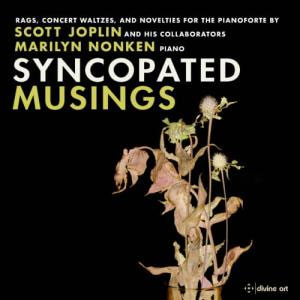 CD Review – Syncopated Musings
CD Review – Syncopated Musings
Marilyn Nonken piano
divine art dda 25220 [67:57]
With this album made at New York University in April 2021 we very much get what it clearly says on the tin. Ragtime developed as a popular musical style at the end of the 19th Century. It has its origins in the saloon bars and dance halls of African-American communities.
CD Review – John Williams And The Boston Pops Orchestra Complete Philips Recordings
Written by Peter Burt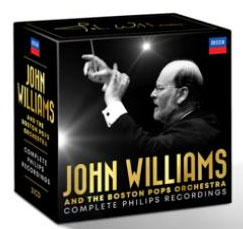 CD Review – John Williams
CD Review – John Williams
And The Boston Pops Orchestra
Complete Philips Recordings
Decca 485 1590 [21 CDs]
This box set is released to celebrate the 90th birthday of the conductor. It consists of the 22 albums recorded by him for Philips during the first ten years of his tenure as the orchestra's principal conductor from 1980 to 1993.
A Wonderful Guy
(Richard Rodgers)
Analysed by Robert Walton
Every industry has its “backroom boys” who know its business inside out, but very often don’t get the credit they deserve. In music, some orchestrators and composers have remained relatively unknown, never getting their name in lights. Warren Barker (1923-2006) born in Oakland, California is good example. Like Nelson Riddle, Barker studied composition under Mario Castelnuevo-Tedesco.
A Wonderful Guy
(Richard Rodgers)
Analysed by Robert Walton
Every industry has its “backroom boys” who know its business inside out, but very often don’t get the credit they deserve. In music, some orchestrators and composers have remained relatively unknown, never getting their name in lights. Warren Barker (1923-2006) born in Oakland, California is good example. Like Nelson Riddle, Barker studied composition under Mario Castelnuevo-Tedesco.
As a child, Barker played piano and trumpet all which helped him in his career in movies, radio and television in the Hollywood area of Los Angeles. Some of the big film companies he was associated with included 20th Century Fox, Columbia and MGM. One of his most memorable arranging jobs was for Oscar-winning “Hello Dolly”. In 1970 Barker was honoured for “My World And Welcome To It” based on James Thurber’s life.
But for the moment let’s concentrate on this classic tune from “South Pacific”. It’s the happiest, joyous and most imaginative instrumental version I’ve ever heard. The song with its constant three beats in a bar does full justice to this intoxicating waltz. In fact there’s quite a lot of Riddle in the score. Like many 2021 television ads, pizzicato strings open the arrangement. From the pool of Rodger’s melodic masterpieces A Wonderful Guy is reborn. Woodwind and normal strings keep up the cheerfulness with lower strings providing a bit of drama at the end of the second phrase.
Middle section time now on the words “I’m as trite and gay as a daisy in May, a cliché coming true” when the violins really come to life as they divide into two strands enhancing the tune. If you think they’re groovy enough, prepare yourself for the next time we hit the bridge! Before that some deliberately “wrong” chords herald a slow down in anticipation of the most moving moment in the whole piece.
Then getting every ounce out of the melody, 16 bars of cutting edge strings immerse themselves as never before in this glorious tune. Somewhere Schoenberg is shadowing. The power of music is amazing. By this time you should be totally involved.
It’s not generally known that Rodgers born in NY City was of German origin, his father a doctor, and the family name was Rogazinsky.
Guild GLCD 5153

